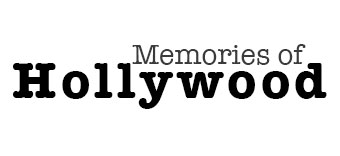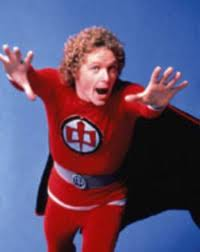One show marked the beginning of what we could call ‘modern times’ in TV entertainment. That show is, of course, “The Greatest American Hero.” Agent Bill Maxwell, played by Robert Culp, took the baton in the great zeitgeist relay race that marked the beginning of “military industrial complex” as entertainment. After many years, most of my life in fact, we are still in this phase, “NCIS” and Donald Bellisario being the inheritors of the work started by Stephen J. Cannell.
Yeah, this is heavy stuff.
This was the beginning of the Reagan era; we were emerging from the fuzzy sweater angst of the Carter years and into something, that seemed to me, to be a little more kick-ass. School teacher Ralph Hinkley, played by William Katt, represented the old order, a kind of hippie camp that held sway with shows as divergent as “The Partridge Family” and “S.W.A.T.” Even shows that had cops or secret agents had a more feel-good vibe about them. Robert Culp was even in one called “I Spy.” But Culp as Bill Maxwell, of course represented a new order. At first he was played for laughs, with his ‘happiness is a warm gun’ t-shirt and his uptight demeanor. This was when the character was being tested out; his persona quickly became one of the most popular aspects of the show. Nobody knew it then but he would turn out to be the granddaddy of more military themed shows like “Magnum PI” (with its Vietnam War theme), “The A-Team” (all ex-military), and later, “JAG.”
Thematically, the show’s episodes were about Ralph trying to smooth out his rough-edged LA kids and teach them life lessons at the same time. In the meantime, Bill was usually bursting into the classroom with news of a crime that needed solving (with the help of the Suit). The storyline involved the unscrolling of Maxwell’s “scenarios,” usually with a differing degree of resistance from Hinkley.
Figuratively, Hinkley and Maxwell battled for the souls of Hinkley’s high school students, who of course represented the future of television audience tastes everywhere; while Ralph’s girlfriend Pam stood by amused and bemused (Connie Sellecca was never really given much to do but react). On one side was a confused post-Vietnam Ralph, dealing with Cold War anxiety, and Bill, with a more Goldwaterish “bomb them back to the stone age” feel that people actually took as refreshing in that era. As time wore on Michael Pare and his fellow students started taking Bill more seriously, and it was the beginning of the end of the détente between Ralph and Bill.
But in the show Hinkley was the one given the Superpowers; and he had a lot of anxiety about even using the Super Suit, especially without its instruction manual, which they’d lost in the California desert. Looking at it one way (and perhaps too deeply), maybe the aliens gave Ralph, and not Bill, the Suit in an attempt to forestall (albeit unsuccessfully) all of what was to come later on in TV entertainment. Indeed, after Season 1, Ralph’s anxiety slowly ebbed as the character of Bill Maxwell took on added seriousness and the transitionary vibe in TV entertainment was now in full effect.
Apparently Hollywood had felt we needed a change in the cultural order. Politically we went from the hostage rescue debacle in the Iranian desert to the feel-good invasion of Grenada in just a few short years. Even as a 13-14 year old I knew the feeling was becoming very different. Another Hinckley (with a ‘c’) had tried to assassinate the President; and Cannell and company temporarily changed the name of Ralph Hinkley to Ralph Hanley. This lasted a few episodes, then, maybe because they felt they’d overreacted, Ralph got his old name back.
By the truncated and final Season 3, Ralph had become a little jingoistic himself, not nearly as resistant to Bill’s urgings as he had been earlier. Was this a good thing? For when Ralph gave in; the show lost its teeter-totter sway, its balance now truly lost and the series was cancelled shortly thereafter. You can now fast forward to the present day and see we have all these overly serious acronym shows like the aforementioned “NCIS” and “Law and Order: SVU” (both lampooned to humorous effect by Kate Mulgrew on the web). They have a militaristic “official” feel that we can trace back to the shows of the early 80’s. The shows back then were just more fun, even with the ever increasing hardware.
Feel-good American jingoism felt nice when I was a kid, when people in general needed something different to “feel good” about. But it’s been a long time now, my entire childhood and now adulthood. It’s outlived not only Stephen J. Cannell but also Mr. Robert Culp himself. Perhaps the time has come for Bill Maxwell to hand off the baton to someone new who will eventually dial down all the serious militarism.
But is it even possible to re-emerge back into what I like to think of as a more innocent era in TV entertainment? Maybe it will be when people get sick of all the true crime and the killings (though I do watch many of these shows myself [hey, there are not enough episodes of “New Girl” to fill all the time!]).
Til then, I challenge a newcomer to inherit the throne, a new Bellisario but with a different edge. And until it comes to pass, then, Ralph Hinkley, I think it’s time for you to suit up again, this time on DVD.





